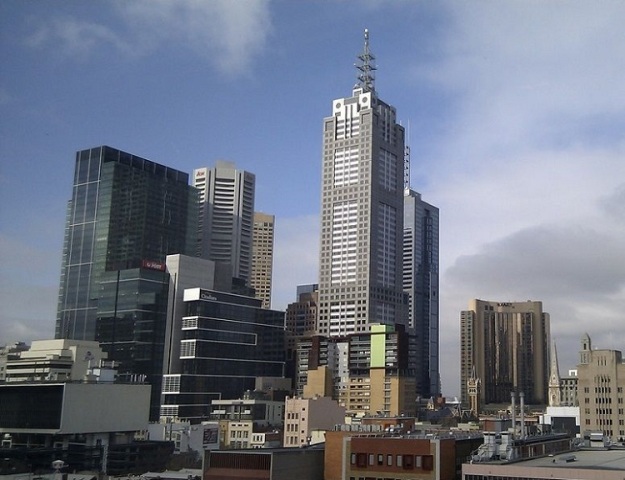Nauru is the world's smallest independent republic island nation. Check out some interesting and fun facts about Nauru
Facts About Nauru
Formerly known as 'Pleasant Island', Nauru is a tiny island nation located in the Micronesian South Pacific. The island was originally occupied by Micronesian and Polynesian people. It was in the late 19th century that Nauru was annexed and designated as a colony by Germany and became an authorized territory administered by Australia, New Zealand and the United Kingdom, following World War I. During World War II, the country was occupied by Japan and finally achieved independence in 1968. Today, Nauru is a prime tourist destination and is one of the few island nations that allow easy strip mining operations. The two largest revenue earners for this beautiful nation are primary industries (phosphate extraction) and tourism. It would also interest you to know that this island is a member of the United Nations and the Commonwealth of Nations. If all this information has caught your attention, if you want to find out some more interesting and fun facts about Nauru, read through the following lines in this exciting article.

Image: Alpha@flickr
Fast Facts
Area: 21 km2
Capital: Yaren
Population: 9,378
Currency: Australian Dollar
Official Languages: Nauruan, English
Calling Code: +674
Independence Day: January 31, 1968
Type Of Government: Presidential republic
Interesting & Fun Facts About Nauru
- Nauru is officially named as the Republic of Nauru.
- Yaren is the de facto capital of Nauru.
- British Captain John Fearn, a whale hunter, was the first Westerner to visit the island in 1798 and named it Pleasant Island.
- The nearest neighbor of the country is Banaba Island, in the Republic of Kiribati, 300 km due east.
- The anthem for Nauru is ‘Nauru Ubwema’, which means (Nauru, our Homeland).
- The national currency of Nauru is Australian Dollar.
- Nauru was a prime source of valuable phosphates in the early 20th century. Before the Australian troops wrested control of this nation, Nauru was controlled and inhabited by the Germans.
- Life expectancy in this small island nation is 61-years-old.
- Nauruan is the official language of the island, although English is also widely spoken.
- The climate of Nauru is a tropical one, with moderate summers and winters.
- Nauru achieved its independence in 1968 and joined the UN in 1999, as the world's smallest independent republic.
- Nauru is the world's smallest island nation, covering just 21 km².
- It is the only republican state in the world without an official capital.
- Nauru follows a parliamentary system of government and is one of the smallest democracies in the world.
- It is the least populous member of the United Nations.
- Nauru was once one of three great phosphate rock islands in the Pacific Ocean, the others being Banaba (Ocean Island) in Kiribati and Makatea in French Polynesia. Phosphate was discovered on the island in 1900, by prospector Albert Ellis.
- The motto of this small island-nation is ‘God’s Will First’.
- The main religion practiced on the island is Christianity. About two-third Christians are Protestant and one-third Roman Catholic. There is also a considerable Bahá'í and Buddhist population on the island.
- Nauru has close diplomatic ties with Australia, People's Republic of China and Taiwan.
- Nauru has high literacy rates of about 96%. Education for children from the age of six to fifteen is compulsory.
- A traditional activity enjoyed at Nauru is catching noddy birds, when they return from foraging at sea.
- Pandanus trees, coconut palms and tomato trees are amongst the natural vegetation found herein.
- Nauru is also home to the Pacific’s most recognized flower, the beautiful frangipani.
- The island of Nauru has a 30 km stretch of coastline, ringed on all sides by the amazing expanse of the Pacific Ocean. The sandy beaches rise to a fertile coastal belt around raised coral reefs.
- ‘Our Airline’ is the only air service that connects the island of Nauru to the other parts of the world.
- Angam Day is the main yearly festival, which is held on 26 October. The day commemorates the recovery of the Nauruan population after the two World Wars.
- It is widely believed that the country’s phosphate deposits actually originated from the droppings of sea birds.
- Nauru’s highest point is only 71 meters high and is called ‘Command Ridge’.
See also
More from iloveindia.com
- Home Remedies | Ayurveda | Vastu | Yoga | Feng Shui | Tattoos | Fitness | Garden | Nutrition | Parenting | Bikes | Cars | Baby Care | Indian Weddings | Festivals | Party ideas | Horoscope 2015 | Pets | Finance | Figures of Speech | Hotels in India : Delhi | Hyderabad | Chennai | Mumbai | Kolkata | Bangalore | Ahmedabad | Jaipur
- Contact Us Careers Disclaimer Privacy Policy Advertise With Us Lifestyle Sitemap Copyright iloveindia.com. All Rights Reserved.







